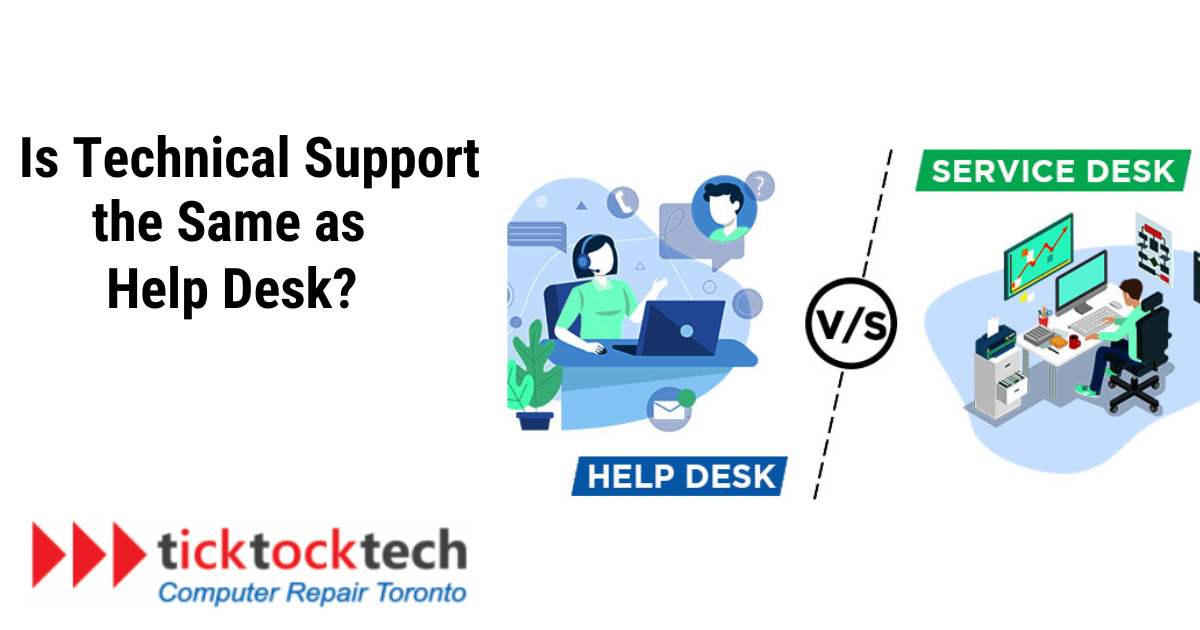On the face of it, help desk and technical support are two terms that are often used interchangeably. Beyond the general use cases, however, these two terminologies couldn’t be more different. Help desk is a general term for any service that provides customer support. This can be anything from answering questions to troubleshooting problems and providing information about products or services.
Technical support, on the other hand, is a more specialized type of customer support that focuses on resolving technical issues. It typically includes support for software bugs, configuring hardware, and complex technical products. Simply put, help desk is a broader term that encompasses technical support, but not all help desk teams are equipped to handle technical issues.
This piece will explore the key differences between help desk and technical support in more detail.
What is Help Desk?
The help desk serves as the primary contact point for addressing product or service-related issues within a company. Its staff is tasked with fielding customer inquiries, diagnosing problems, and offering general assistance.

Help desk personnel possess a broader grasp of the company’s offerings compared to technical support. While they may lack the same depth of expertise as technical support teams, they excel at furnishing basic information and guiding customers toward solutions.
It’s important to note that help desk software differs from front-row support, though similar in concept. Front-row support entails direct interaction between employees and customers to resolve issues, making it more customer-centric.
What is Technical Support?
Similar to desktop support, technical support focuses on tackling technical challenges, ranging from hardware setup to software troubleshooting. Unlike help desk personnel, technical support staff possess a deeper technical insight into the company’s products and services.

To maintain this specialized expertise, technical support often requires additional training and certification to keep up with evolving products and services. They typically operate on a “break-fix model,” offering support when needed without escalation or referrals.
Many companies offer technical support as an enterprise-level service, which tends to be more costly but provides a higher level of service and expertise.
Help Desk vs. Technical Support: Key Differences
The fundamental distinction between the help desk and technical support lies in their operations and approaches.
Let’s quickly review these key differences.
Support objectives
The primary objective of the help desk is to prioritize customer satisfaction. They adopt a customer-centric approach, proactively reaching out to customers to meet their needs. Help desk staff address general issues and concerns, and if necessary, they escalate technical problems to the technical support team.
In contrast, the technical support team’s primary goal is to provide expert technical assistance. They assist customers in resolving technical glitches or malfunctions in company products or services, whether real or perceived.
Technical support professionals are tasked with swiftly identifying the root causes of these issues and resolving them effectively in one go, aiming to eliminate the need for customers to contact them again.
Customer support approach
Help desk staff listen to customers with empathy and put their priorities first. They assure customers that the team is on their case and that they matter to the company.
Help desks recommend possible solutions, which may be new products/services or new approaches to using existing products/services. Technical support representatives are focused on resolving technical issues as quickly as possible.
The average technical support staff will listen to customers to understand their problems and then guide them through detailed steps on how to fix them.
Problem-solving approach
A help desk operates with a broad and holistic approach to tackling customer problems, requiring staff to possess general knowledge of product and service-related matters, albeit without going into intricate technical details.
The technical support team, on the other hand, employs a highly targeted approach. You’ll find that they specialize in various areas, such as software, hardware, networks, and systems, allowing them to provide precise solutions to technical issues.
Help Desk Vs. Technical Support: How do they Relate?
On an organizational scale, the help desk and technical support teams work together to provide the best possible customer support. The help desk is often the first to identify and escalate a problem to technical support for resolution.
Once the problem is resolved, technical support may provide feedback to the help desk so that they can better help other customers with similar problems in the future.
Can you have both Help Desk & Technical Support?
Yes. In fact, both technical support and a help desk are vital components of exceptional customer service. Having both these services available within your business ensures efficient operations. Help desks handle basic inquiries, while technical support tackles more intricate issues.
Together, they form a cohesive customer service system, ensuring all customer needs are addressed, regardless of complexity. However, if resource constraints are a concern, it is wise to prioritize one, and often, starting with a help desk makes sense.
Combining desktop support and help desks can yield time and cost savings. By centralizing customer service, you streamline issue resolution, reducing the time and resources on customer support.
Final Thoughts
Now that you understand the difference between help desk and technical support, you are set to choose the right customer support solution for your needs. Suppose you have a small business with limited resources; you may want to start with a help desk solution.
Help desk teams can handle various tasks, including answering questions, troubleshooting problems, and resetting passwords. Having a help desk in place frees up your time so that you can focus on other aspects of your business.
If you have a larger business or offer complex products or services, investing in a reliable technical support solution makes sense. Technical support teams have the expertise to handle more complex technical issues. In this case, they equip your customer support with the necessary tools to keep your customers happy and productive. No matter which type of support you choose, ensuring your support process is efficient and streamlined is important. This will help you to provide your customers with the best possible support experience.

